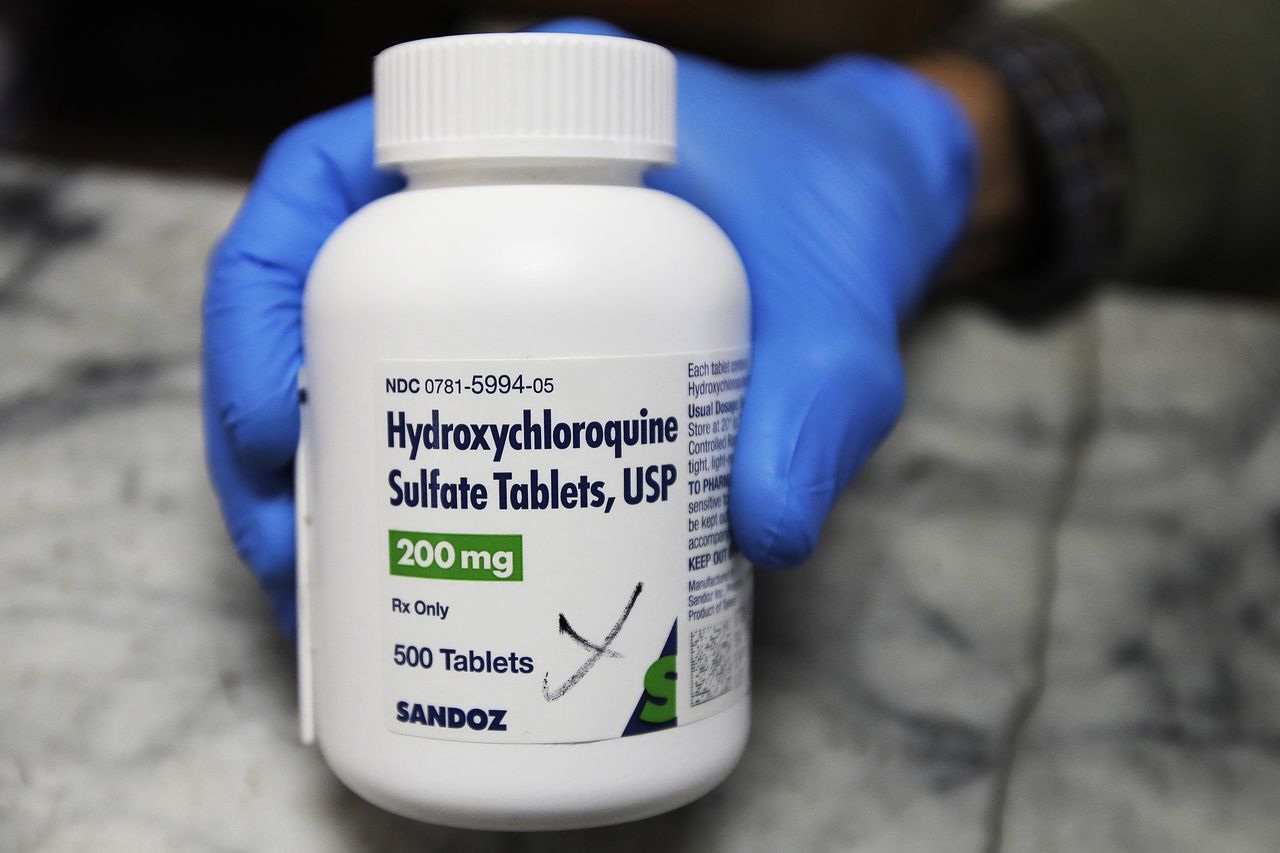Source: France 24 hour news / FR24news
DETROIT, MI – A new study from the Henry Ford Health System could provide more legitimacy on the use of hydroxychloroquine to treat COVID-19.
Henry Ford published the peer-reviewed study on July 1, using large-scale perspective analysis of patients from March 10 to May 2. The study looked at more than 2,500 inpatients from six Henry Ford hospitals, said division chief Dr. Marcus Zervos. infectious diseases for the Henry Ford healthcare system.
He said the health care system wanted to investigate hydroxychloroquine because the data showed that it had some clinical benefit and that it could reduce the inflammatory response in COVID-19 patients at the start of the pandemic.
“We thought it would be important to us, or potentially important to use in our patients, (because) we had no other options that have been proven,” said Zervos.
The study concluded that treatment with hydroxychloroquine significantly reduced the mortality rate in patients with COVID-19, said Zervos. Of those treated with hydroxychloroquine alone, 13% died, compared to 26.4% who died and were not treated with the drug. There was an overall hospital mortality rate of 18.1% and the patients were over 18 years of age, with a median age of 64 years.
Many of the deaths involved people with underlying illnesses, according to an article by Henry Ford Health System. These diseases included chronic kidney and lung disease. The mortality of hospitalized patients varied between 10% and 30% worldwide.
The study also considered treatment with azithromycin. It revealed that 20.1% of patients treated with both azithromycin and hydroxychloroquine died and 22.4% of those treated with azithromycin died – compared to a death rate of 26 , 4% for those who have not been treated with either drug, according to Henry Ford’s health article.
Can hydroxychloroquine prevent coronavirus? New trial will test 3K healthy first responders in Michigan
However, despite the results of the study, the article also said that people should be careful in their reaction to the seemingly encouraging results. Randomized controlled trials are still needed to confirm the efficacy of hydroxychloroquine in the treatment of COVID-19.
“Currently, the drug should only be used in hospital patients with appropriate monitoring and as part of study protocols, in accordance with all relevant federal regulations,” said Dr. Zervos in the article.
Hydroxychloroquine is a medication mainly used to treat malaria and lupus. The drug recently gained notoriety when President Donald Trump touted its effectiveness in treating COVID-19, despite warnings from the FDA, according to an article in USA Today.
The use of the drug to treat COVID-19 remains controversial. Many Michigan health systems, such as Michigan Medicine, Beaumont Health and St. Joseph Mercy, have decided not to use hydroxychloroquine or have stopped using it after trying it, according to a Detroit News article.
FDA Revokes Emergency Approval for Hydroxychloroquine, Trump Drug Presented as Possible Treatment for Coronaviruses
Zervos said the Henry Ford health study was peer reviewed, unlike other studies. While some studies have shown that the drug is not effective, he said that studies of the drug use different doses.
“These studies which have been negative seem to get more attention,” said Zervos. “But there are a lot of studies that have shown that the benefits have not received as much attention, not just our study. “
Related:
Screening, hydroxychloroquine… Professor Raoult’s criticisms of the management of the health crisis
Recovery is the British multi-arm, HCQ trial for COVID-19 that confuses doses and diseases.

